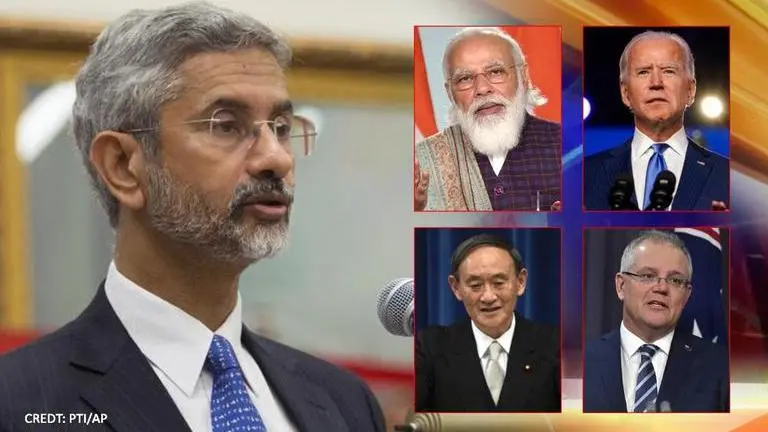Updated 15 April 2021 at 09:53 IST
Jaishankar says calling Quad 'Asian NATO' is a mind game: 'India never had NATO mentality’
Since the first-ever summit of the Quad countries — India, Japan, Australia and the US — in March, many commentators have termed the alliance as 'Asian NATO'
- India News
- 3 min read

The Quad, or the Quadrilateral Security Dialogue, is not an “Asian NATO” and India never had a “NATO mentality”, said External Affairs Minister S. Jaishankar on Tuesday even as he stressed the need for like-minded countries to come together to form coalitions in the changing global order.
The comments were made at the Raisina Dialogue, where the Minister spoke along with Jean-Yves Le Drian, Minister for Europe, Foreign Affairs of France, and Marise Payne, Minister for Foreign Affairs of Australia. Jaishankar said when Quad nations come together, it sends a message of threat to others which people need to get over with. “Using words like ‘Asian NATO’ etc is a mind-game which people are playing,” he added.
“Others cannot have a veto about what I am going to discuss, with whom I’m going to discuss, how much I’m going to contribute to the world. That’s my national choice. That kind of NATO mentality has never been India’s. If it has been there in Asia before, I think it’s in other countries, not in mine,” Jaishankar said.
Quad labelled as 'Asian NATO'
After the revival of Quad in 2017, and since the first-ever summit of the Quad countries — India, Japan, Australia and the US — in March, many commentators have referred to the alliance as the ‘Asian NATO’. The North Atlantic Treaty Organization or NATO is an intergovernmental military alliance between 30 European and North American countries.
Denying that the Quad is a security alliance or an “Asian NATO”, Jaishankar said the group has discussed over 10 broad subjects so far including—vaccine collaboration, higher education and student mobility, climate action, HADR (high availability disease recovery), emerging technology, resilient supply chains, semiconductors, disinformation, counterterrorism and maritime security.
Advertisement
“That list will tell you what is in our minds and what we are trying to do… So, the purpose of coming together is actually to find ways of working for our national benefit, our regional benefit and global benefit,” the EAM said.
‘Indo-Pacific is about overcoming Cold War’
Jaishankar said the Indo-Pacific construct reflects a more contemporary world, mirroring the overcoming of the Cold War and not reinforcing it. He said the Indo-Pacific refers to a seamless world that was historically present in the form of Indian-Arab economic-trading ties and cultural influences from ASEAN nations like Vietnam and the east coast of China.
"I would argue that in a way, the Indo-Pacific is a return to history. It reflects the more contemporary world. It is actually the overcoming of the Cold War and not reinforcing it," Jaishankar said at the Raisina Dialogue. "I very much hope that all of us who run contemporary foreign policy look at it that way," he added.
Advertisement
Historically, India used to see Indo-Pacific as the Indian Ocean and Asia-Pacific. But today, due to globalisation, the rebalancing of power and multipolarity “coming together” of countries have taken place, he said.
Published By : Gloria Methri
Published On: 15 April 2021 at 09:15 IST
